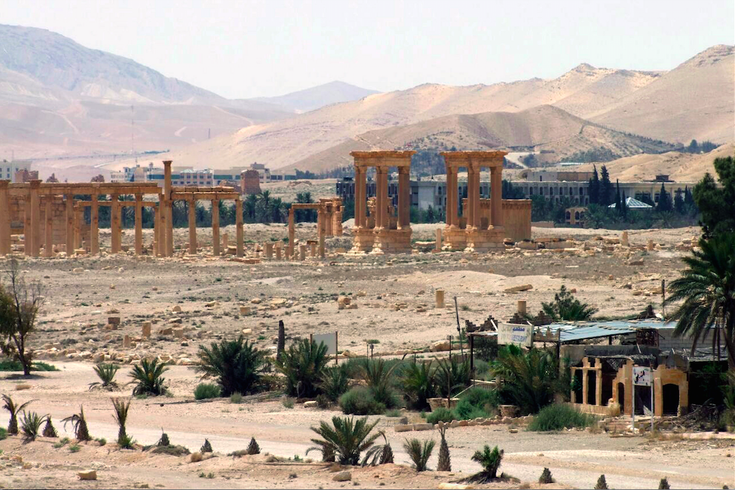
August 19, 2015
 SANA/AP
SANA/AP
This file photo released on Sunday, May 17, 2015, by the Syrian official news agency SANA, shows the general view of the ancient Roman city of Palmyra, northeast of Damascus, Syria. Islamic State militants beheaded 81-year-old Khaled al-Asaad, a leading Syrian antiquities scholar who spent most of his life looking after the ancient ruins of Palmyra, then hung his body from a pole in a main square of the historic town, Syrian activists and the scholar's relatives said Wednesday, Aug. 19, 2015.
A world-renowned Syrian scholar spent more than a month in the hands of Islamic State militants before he was publicly beheaded Tuesday for refusing to disclose the location of valuable artifacts that had been hidden during the Jihadi group's seizure of more than a third of the country.
Khaled al-Assad, 82, served as the head of antiquities in Palmyra for more than 50 years before he was executed in a ruthless display of ISIS' strategy of looting and selling antiquities to help fund its operations, The Guardian reports.
City officials in Palmyra, which was captured from Syrian government forces in May, moved hundreds of ancient statues and treasures from the town's museum out of concern that ISIS militants, in keeping with their puritanical rejection of "idol" worship, would destroy or sell them. A former Syrian antiquities official said that al-Assad played an important role in moving the artifacts and consequently faced certain arrest by militants, though he did not attempt to leave the city.
The ruins of Palmyra, a vital hub along the Silk Road in antiquity, housed artifacts including the Temple of Bel and several Roman tombs. Al-Assad, a scholar of Aramaic language, had participated in international archeological missions over the past several decades, discovering ancient cemeteries, caves and a Byzantine graveyard in the garden of the town museum, according to the Syrian news agency Sana.
The agency reported that al-Assad was beheaded Tuesday in front of dozens of people in a square outside the museum. Militants then hung his body from a Roman column at an archeological site in Palmyra.
Unesco, which named Palmyra a world heritage site, recently raised a warning call about looting by ISIS, a practice it says has reached an "industrial scale" as stolen artifacts in Iraq and Syria become a significant revenue source.